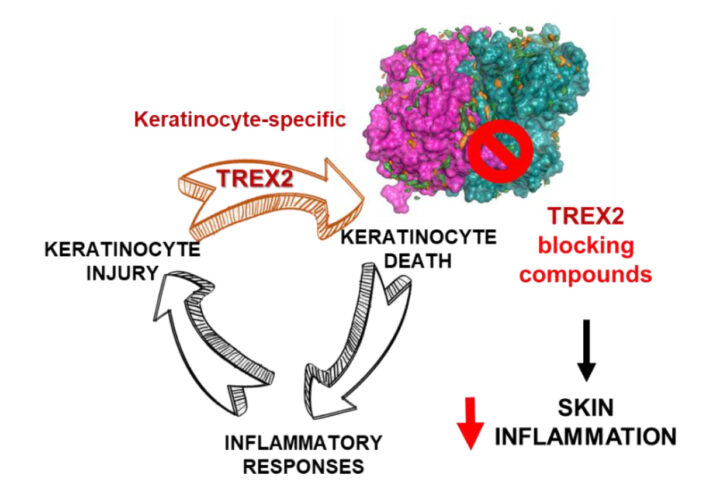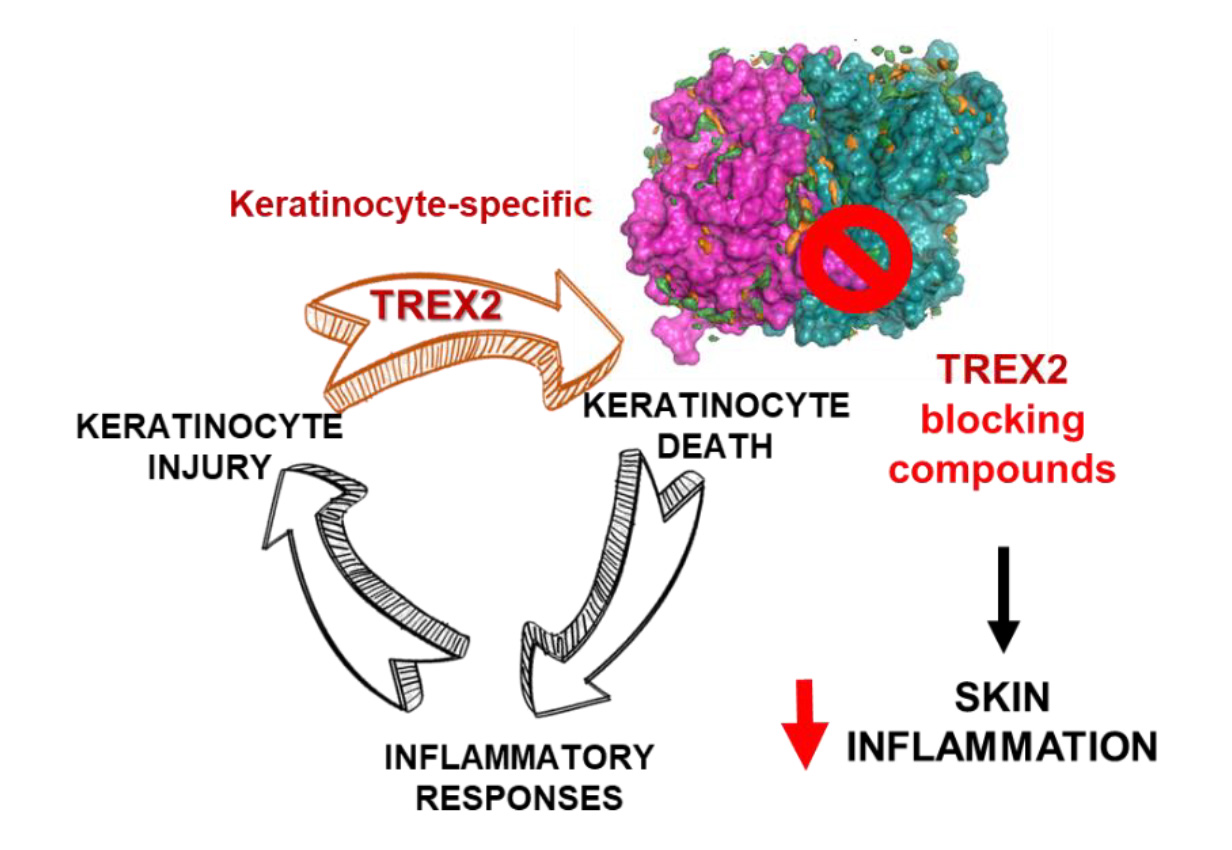Psoriasis is an inflammatory immune-mediated disease characterized by keratinocyte proliferation and deregulated differentiation and immune cell infiltration.
Psoriasis treatments range from locally applied creams, or related Over-the-counter products (OTCs), for mild psoriasis, to systemic medications with biologics or other drugs, for severe cases. These treatments are effective, but over time they are associated to secondary effects like immunosuppression and cancer susceptibility. A highly effective, safe and selective treatment is required in order to reduce inflammatory responses only on the skin, where psoriasis causes the problem.
In order to solve the problem, researchers from the University of Barcelona and IDIBELL have identified and tested, with positive results, two small-molecules that selectively inhibit the inflammatory response in the skin, reducing the effects of psoriasis. These molecules inhibit TREX2, an exonuclease whose expression is restricted to the keratinocytes and acts promoting keratinocyte-driven psoriasis inflammation. The use of these molecules as psoriasis treatment reduces the risk of systemic side effects, providing a safer therapy for mild, moderate and severe psoriasis.
Besides psoriasis, transcriptomic data reveals evidences that TREX2 inhibition could also be used to treat other skin-related diseases like atopic dermatitis or ichthyosis, but no experimental data is available. The represented institutions are looking for a collaboration that leads to a commercial exploitation of the presented invention.
Institution: Universidad de Barcelona
TRL: 2-3
Protection status: Know-how
Contact: Miguel Estruch / miguel@viromii.com


